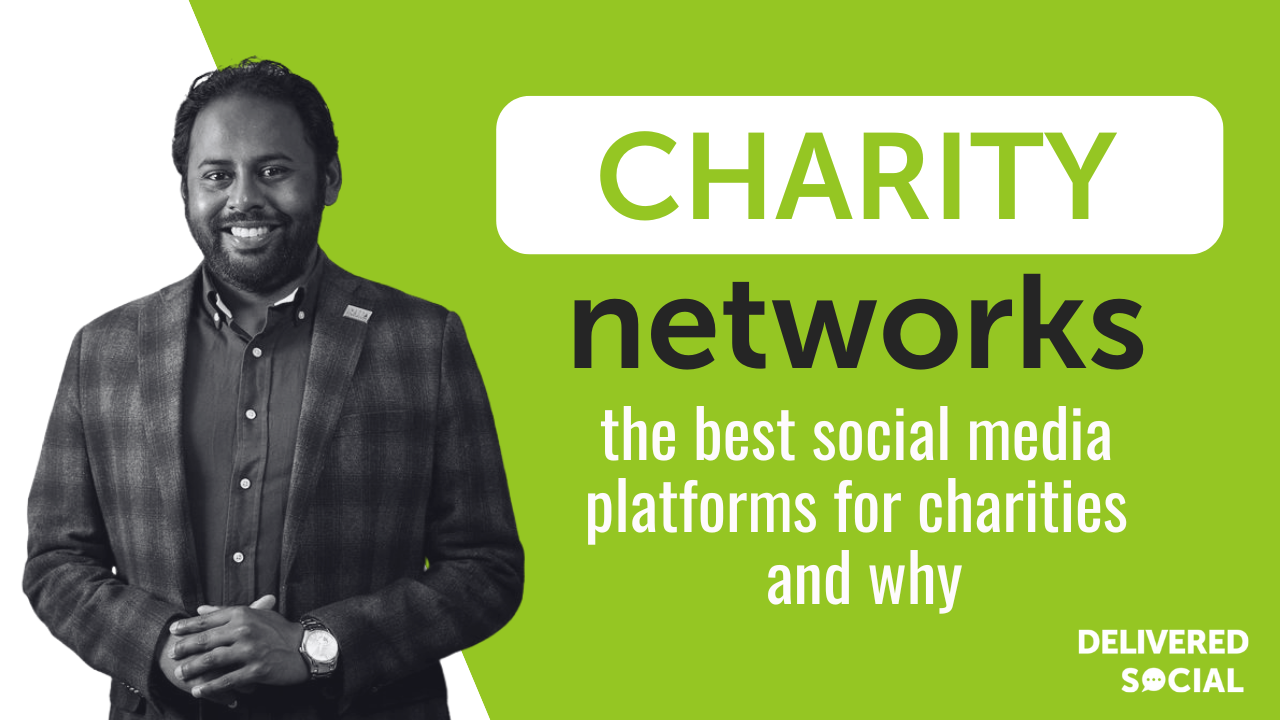
In the digital age, social media has become an indispensable tool for charities worldwide. It’s a platform where they can reach out to a massive audience, share their stories, and drive donations. But with so many platforms available, which ones are the best social media platforms for charities?
- In-depth Analysis of Key Social Media Platforms
- How to Effectively Use Social Media for Charities
- Case Studies of Successful Social Media Campaigns by Charities
- Harnessing The Power of Social Media for Charities
In-depth Analysis of Key Social Media Platforms
In the vast landscape of social media, five platforms stand out for their unique features and extensive user base – Facebook, Twitter, Instagram, LinkedIn, and TikTok. Each of these platforms offers unique opportunities for charities to connect with their audience, share their stories, and drive donations. Let’s take a closer look at the best social media platforms for charities:

Facebook: The Storyteller’s Platform
With its 2.8 billion users, Facebook is a platform that charities can’t afford to ignore. It’s a versatile platform that allows charities to share their stories through text, images, and videos. The platform’s advanced targeting methods have proven to be particularly useful, especially during lockdowns when face-to-face fundraising was halted. Facebook’s link with Instagram also means that competitions and contacts can be synced across platforms, providing a seamless experience for users.
Example Post: A charity could share a video story of an individual or community they’ve helped, accompanied by a heartfelt caption detailing their journey. This could be followed by a call-to-action encouraging viewers to donate or share the post to spread awareness.
Twitter: The Conversation Starter
Twitter, with its 192 million users, is popular with a wide age range. It’s an excellent platform for releasing news related to the cause, getting involved in conversations, and social listening. Remember, when using hashtags on Twitter, it’s about quality over quantity.
Example Post: A charity could share a tweet about an upcoming fundraising event, using relevant hashtags and tagging other involved parties. They could also engage with their followers by asking a question or seeking opinions on a relevant topic.
Instagram: The Visual Storyteller
Instagram has taken the social media world by storm and is particularly useful if you want to share some visual storytelling about your charity. Donation features are also available on Instagram, making it simple for followers to donate directly. However, make sure you are fully informed about the T&Cs as there are many guidelines to follow.
Example Post: A charity could share a series of photos from a recent event, or a powerful image that represents their cause. They could also use Instagram Stories to share behind-the-scenes content or run Q&A sessions to engage with their followers.
LinkedIn: The Professional Network
LinkedIn, with its 756 million global professionals, can be a valuable platform for charities. It’s a great place to share more formal and professional content, such as reports, studies, and professional achievements of the charity. LinkedIn can also help boost credibility for charities and connect them with business leaders worldwide.
Example Post: A charity could share a detailed report on the impact of their work over the past year, or an article discussing a relevant issue in their field. They could also share updates on any awards or recognitions they’ve received.
TikTok: The Viral Content Creator
TikTok, the newest player in the social media game, has quickly gained popularity, especially among younger audiences. With its short-form video content, TikTok offers a unique opportunity for charities to create viral content that can reach millions of users worldwide. From dance challenges to heartfelt stories, the creative possibilities on TikTok are endless. In particular Influencer Marketing has become huge on TikTok and the benefits can be amazing!
Example Post: A charity could create a short video showcasing the work they do, set to a popular or relevant song. They could also participate in a trending challenge, adapting it to fit their cause.
How to use your Best Social Media Platforms for Charities effectively:
Social media is more than just a broadcasting tool; it’s a two-way communication channel that allows charities to engage with their audience, share their stories, and drive impact. Here’s how charities can effectively use social media:
Understand Your Audience
Before you start posting, it’s crucial to understand who your audience is and what they care about. Use the analytics tools provided by each platform to learn about your audience’s demographics, interests, and online behaviours. This information will help you create content that resonates with your audience and choose the right platforms to focus on.
Create Engaging Content
Content is king on social media. Create content that educates, inspires, and engages your audience. This could be stories about the people you’ve helped, updates about your work, educational content about your cause, or behind-the-scenes looks at your charity. Remember to use a mix of content types (text, images, videos) to keep your content fresh and engaging.
Leverage Platform Features
Each social media platform offers unique features that can help you connect with your audience. For example, you could use Facebook’s fundraising tools to drive donations, Twitter’s hashtags to join relevant conversations, Instagram’s visual focus to share powerful images and stories, LinkedIn’s professional network to connect with business leaders and influencers, and TikTok’s viral nature to reach a younger audience. Using online tools can help you with consistency and efficiency
Measure Your Success
Finally, it’s important to measure your success on social media. Use the analytics tools provided by each platform to track your performance. Look at metrics like reach, engagement, and conversions to understand what’s working and what’s not. Use this information to refine your strategy and improve your results over time.
Case Studies of Successful Social Media Campaigns by Charities
There’s no better way to understand the power of social media for charities than by looking at real-life success stories. Here are a few examples of charities that have effectively leveraged social media to raise awareness, engage their audience, and drive donations.
Charity: Water’s Birthday Campaign
Charity: Water, a non-profit organisation dedicated to providing clean and safe drinking water to people in developing nations, launched a successful campaign called “Donate Your Birthday”. They encouraged their supporters to ask for donations instead of gifts for their birthdays. The campaign was promoted heavily on social media, particularly on Facebook and Twitter, leading to a significant increase in donations.
Macmillan Cancer Support’s Coffee Morning
Macmillan Cancer Support, a UK-based charity, hosts an annual event called the “World’s Biggest Coffee Morning”. The event encourages people to host their own coffee mornings and raise funds for the charity. Macmillan promotes the event extensively on social media, using the hashtag #CoffeeMorning to generate buzz and encourage participation. The event has been a huge success, raising millions of pounds each year.
RSPCA’s #EndDogFighting Campaign
The RSPCA, a charity focused on animal welfare, launched a campaign called #EndDogFighting to raise awareness about the illegal practice of dog fighting. The campaign was promoted on social media, with the charity sharing powerful images and stories to highlight the issue. The campaign successfully raised awareness about dog fighting and encouraged people to report any suspicious activity.
These case studies highlight the power of social media for charities. With the right strategy, charities can use social media to raise awareness, engage their audience, and drive donations.
British Heart Foundation’s #RestartAHeart Campaign
The British Heart Foundation, a leading charity in the UK dedicated to fighting heart and circulatory diseases, launched a successful campaign called #RestartAHeart. The campaign aimed to raise awareness about the importance of knowing how to perform CPR.
The charity used social media platforms, particularly Twitter and Facebook, to share educational content, personal stories, and powerful visuals about the impact of CPR. They encouraged their followers to share their own experiences with CPR, creating a sense of community and engagement around the campaign.
The #RestartAHeart campaign was a huge success, reaching millions of people, raising awareness about the importance of CPR, and driving significant engagement on social media. In this case the best social media platforms for charities was Facebook and Twitter.
Harnessing the Power of Social Media for Charities
Each social media platform offers unique opportunities, and by understanding these, charities can choose the platforms that best meet their needs and resonate with their audience.
However, effectively leveraging social media requires a clear strategy, engaging content, and an understanding of your audience. By following the best practices outlined in this blog post, charities can harness the power of social media to raise awareness, engage their audience, and drive impact. You should also consider our top tips if you’re just starting out as a new charity!
At Delivered Social, we understand the unique challenges and opportunities that charities face on social media. That’s why we launched Delivered Social Green, a project dedicated to supporting charities with their digital marketing needs. We offer free social media clinics, where we provide advice on how to improve your social media strategy, create engaging content, and measure your success.
We’ve had the privilege of working with a number of charities, helping them to harness the power of social media to reach their goals. For example, we’ve helped charities to create engaging content that tells their story in a compelling way, reach a wider audience through targeted social media campaigns, and drive donations through effective call-to-actions.
But our support doesn’t stop at social media. We also provide advice on a range of digital marketing topics, from SEO to website design, helping charities to create a comprehensive digital marketing strategy that drives results.
We believe that with the right support, every charity can harness the power of social media to make a bigger impact. And we’re committed to providing that support, helping charities to reach more people, inspire more donations, and make a bigger difference in the world. We also hope using this article on The Best Social Media Platform charities will help give you a kickstart! For further information why not read our blog on attending a Social Media Course!
Interested In Working Together?
Introducing Delivered Social. We're The Most-Rated Digital Agency In Surrey & Hampshire – We've Got To Be Doing Something Right.
Delivered Social is a digital marketing agency with one mission—to help businesses grow. We're famous in Guildford and Portsmouth for our social clinics. We believe in free advice. We build lasting relationships because our team prides itself on being helpful, which our clients appreciate.
If you are looking for a new website or an agency to manage your social media presence, we can help.
If you need something slightly different, here's a super handy list of all our services, or you can always email us.























